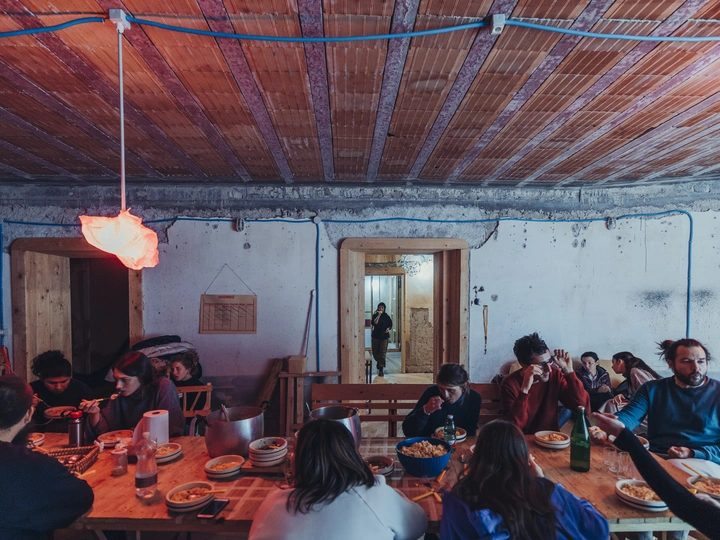La Casa BelMondo

Matteo Blandford
Francesca Bova
Ian Davide Bugarin
Gerardo Cleto
Sandra Denicke-Polcher
Joe Douglas
Jane McAllister
Vito Meola
Luke Vouckelatou
La Rivoluzione delle Seppie is a hyper collective formed by an active group of international professionals working in Calabria, Italy, interested in exploring the boundaries of practice and education. Through research, planning, design and education, we aim to improve the cultural fabric of the community, promote social integration and territorial development. The main objective is to experiment a new pedagogy for all creative fields, developing formal and informal learning projects, promoting cross-fertilisation and confrontation between people from different backgrounds, such as artists and professionals from all over the world, also through a residency programme including the local community and migrants in order to promote Calabria as a fertile and attractive ground for creative and social initiatives. We observe a provocative method and approach in complex contexts and share their knowledge with stakeholders in the form of ideas, designs, models and experiences.
LRdS emerges from a specific way of thinking, from the desire to promote an alternative to the “traditional” way of learning. The very name of our organisation — “the Squid Revolution” — is a reference to the behaviour of the Vampyroteuthis Infernalis (the Vampire Squid) as it was studied by V. Flusser in the late 20th century. The behaviour of this animal is distinctively different from the way humans typically operate, as the author writes : “Whereas our method of comprehension is active- we perambulate a static and established world- its method is passive and impassioned: it takes in a world that is rushing past it. We comprehend what we happen upon, and it comprehends what happens upon it. Whereas we have ‘problems,’ things in our way, it has ‘impressions’. Its method of comprehension is impressionistic.” This approach is at the core of the emergence of LRdS : learning by doing, unlearning and reshaping our ways of conceiving the world, others, education, and learning itself.
As the actions of our association grew, the opportunity to renovate the space formerly known as “La Casa delle Monache” thanks to the collaboration with the municipality of Belmonte Calabro allowed us to launch the creation of a new kind of public space. The construction of new spaces for public use, temporary intervention, and the recovery of the city's heritage and memory of the place are some of the objectives of the BelMondo project, which stems from the desire to give concrete form to the idea of a place open to all, inclusive and in constant cultural and social transformation. Since 2019, through various workshops and residencies, the collaboration with the London MET as well as the School of Commons, the Casa has taken shape to become a fully inhabitable space by the end of summer 2023 : the main floor of the casa revolves around the concept of 'collaborative rooms', a term more commonly known in cooperative office environments as spaces to relax, regroup and generate ideas, while the upper floor will soon become bedrooms and living quarters for the temporary inhabitants.
This project is profoundly rooted in the context of climate change, both by the methods that allowed for its construction and the beliefs that guide our daily life in this space. The Casa is built by taking full advantage of the existing structure : the old stone walls and general layout of the building have been preserved as they help to deal with the extreme heat, the renovations are designed by taking into account local practices and reusing as much pre existing materials as possible, and the space is modular as to be flexible for different uses without generating more waste. From a living perspective, this house becomes an agent in itself : it allows people to come and practise an alternative way of living, to go against a productivist and wasteful lifestyle, and to engage in discussions with actors from diverse backgrounds around essential topics.